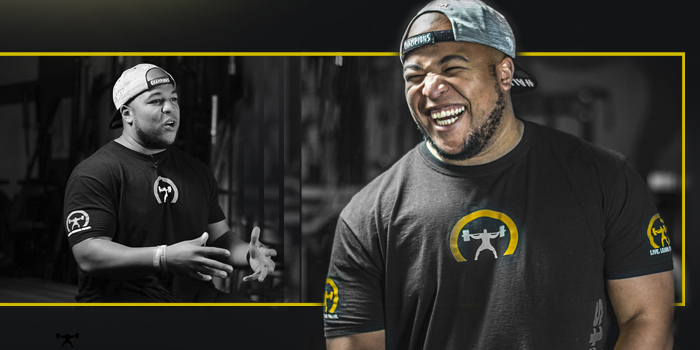
We as an industry, really all coaches worldwide, talk about the problems that arise from early on specialization in youth athletics. We talk about how this limits the child's athletic development due to the need to access different abilities in different sports. We talk about how cross-training is very beneficial for an athlete's total motor skill development and let recruiting dictate what they will play in college. We all agree with these above points. But why do so many coaches, and I'm talking through a strength and conditioning lens, try to specialize so early?
I think when the football-only jobs were starting to break into the Group of Five schools or non Power Five or whatever we call them, that's when things started to get dangerous. It would be ill witted to think that Power Five schools, with all their resources, wouldn't create single-serving strength coach jobs. I don't mean this as a derogatory term, but it's just the fact of the matter that you serve a single duty as the strength coach of that team. There are now baseball-only strength coaches becoming very prevalent (and those will continue to grow), basketball-only, and of course, football-only strength coaches. And those are the jobs that, for the most part, are the most coveted. Not just for the monetary values associated with them but also for the autonomy and quality of life, at least on the Olympic side. On top of that, the coveted title of "Director."
RECENT: Programming is Irrelevant
I'm not saying it's a bad thing to attain these jobs. Heck, I have been a football-only guy before. What most people don't know about me is out of my seven different jobs, I've only been football-only four times. It's at Western Kentucky, Buffalo, Akron, and at Bowling Green, where I didn't work with any other sports. Even during my first year at Georgia Southern, I ended up working with baseball, track and field, and women's soccer. I didn't work with other sports for about 12-13 months here at Georgia Southern. So most of my time here has been working multiple sports. I've worked with everything in my career from cheer to rifle, football, baseball, to both basketballs, and everything in between. If it weren't for that vast experience I've been blessed to have, I probably would have had many early struggles in my current job.
I'm not saying if all you do is football, that all you know is football. I think that's a personal issue of a non-growth mindset. But sport cultures are tricky across the board. Experiencing multiple cultures, not only with the athletes but the coaches, is a very understated part of what will help you be successful long-term as a strength coach. There's a lot of frustrations early on if you don't understand you don't need to bring your "football" mentality to every single team. There are multiple ways of coaching, and let's be honest, the odds you retire a football-only strength coach at the age of 70 are not very high. Not saying that it's not possible, but at some point, you will need to diversify your resume to move forward in this industry to another area of sports performance. Whether that be a single serving sport only job or that be a director of Olympic sports or even an assistant director position on the Olympic side, it'll be easier to attain that job with more on your resume than P5 football experience on it.
Now at some point in time, the career will take you the way you're going to go. Just like if you play high school baseball, track, and football, recruiting is going to take you where you're going to go. But until that point, grow all your skills, and get away from doing what you did in college. Do the exact opposite. I know it's extremely uncomfortable at first, but it'll only help you grow. I used to never want to work with any field sports. Soccer was my nightmare due to the extreme difference between them and what I did in college (the stuff I naturally knew how to program for). But over the years, I've been around soccer, currently have women's soccer, and I love it. Programming for soccer is just as easy as programming for football is for me now. It takes time working with multiple sports to hit your groove.
The other beautiful part of not specializing early is that you learn things from each sport that you can use down the line if and when you become a single sport strength coach. I use neck training tools from football with my women's soccer team all the time. I use ankle mobility and groin exercises from women's soccer on volleyball all the time. I have also merged and spliced a plethora of shoulder and scap strengthening techniques between baseball and volleyball. A lot of jump training I do with volleyball, I stole from my plyometric progressions with baseball during a lot of their contrast stuff. Had I just stuck in football, my pot to pull from would've been a mile long but only an inch deep.
In closing, I have to reiterate the point of not specializing early on in your career, especially if you have a choice. If you're in a football-only role, ask your boss about the possibility of taking another team, even a small one. It'll only help you out in the long run of your career. I'm not saying give up opportunities you've always wanted just for the sake of non-specialization, but always try to find ways of keeping your resume diverse when given a chance. Don't chase short-term gains and miss out on long-term success. Remember that while you're young and maybe on a hot track in your career, you're not untouchable. You're one bad move from being unemployed or placed in a different career field altogether. Write your own story now by doing everything you can to hold onto the pen yourself. As always, stay strong and #GATA.










